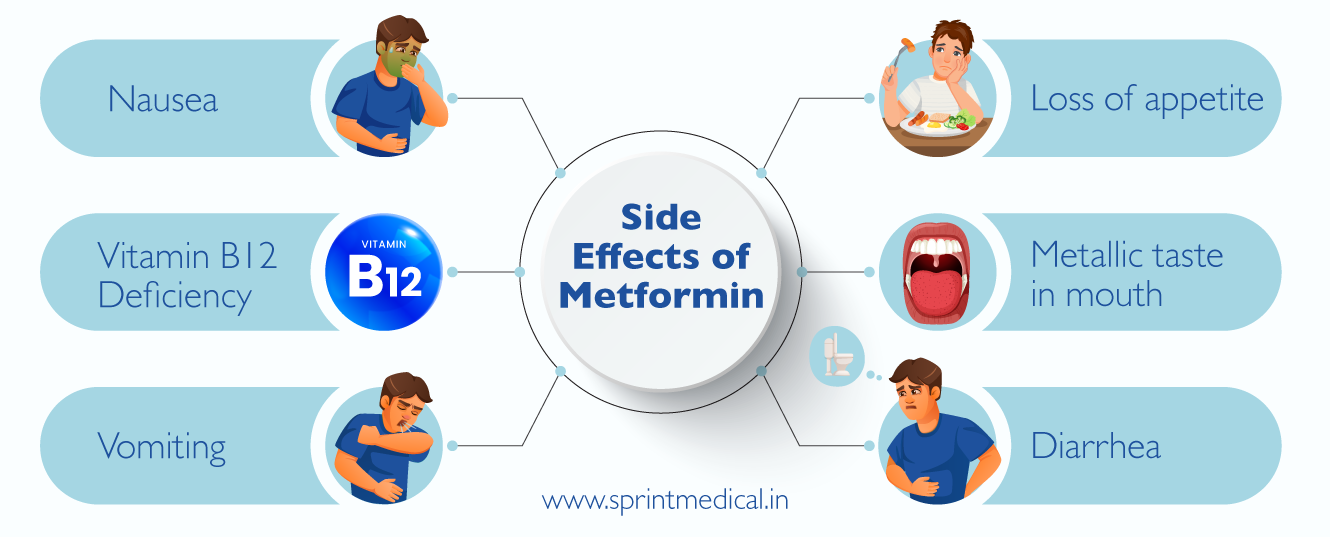Metformin, while generally safe and effective, can cause side effects. The most common include nausea, diarrhea, and stomach upset. These usually subside as your body adjusts to the medication. Drinking plenty of water with each dose and taking it with food can help minimize gastrointestinal discomfort.
Less Common Side Effects
Less frequently, metformin may lead to a metallic taste in your mouth, vitamin B12 deficiency (requiring monitoring and potential supplementation), and lactic acidosis – a rare but serious condition characterized by excessive lactic acid in the bloodstream. Lactic acidosis is more likely in individuals with kidney problems or liver disease. Regular blood tests are often recommended to monitor kidney function while taking metformin. Promptly report any unusual muscle pain, weakness, or breathing difficulties to your doctor.
Before starting metformin, inform your doctor about all your medical conditions, including kidney or liver disease, heart problems, or alcohol abuse. Also disclose any other medications you are taking, as interactions are possible. Metformin should be stopped before any procedure requiring contrast dye to prevent kidney damage.
Alcohol Consumption
Limit alcohol consumption while on metformin, as combining the two increases the risk of lactic acidosis. Your doctor can advise on safe alcohol limits for you. Always follow your doctor’s instructions regarding dosage and frequency of medication. Regular check-ups allow for monitoring and early detection of any potential issues.



